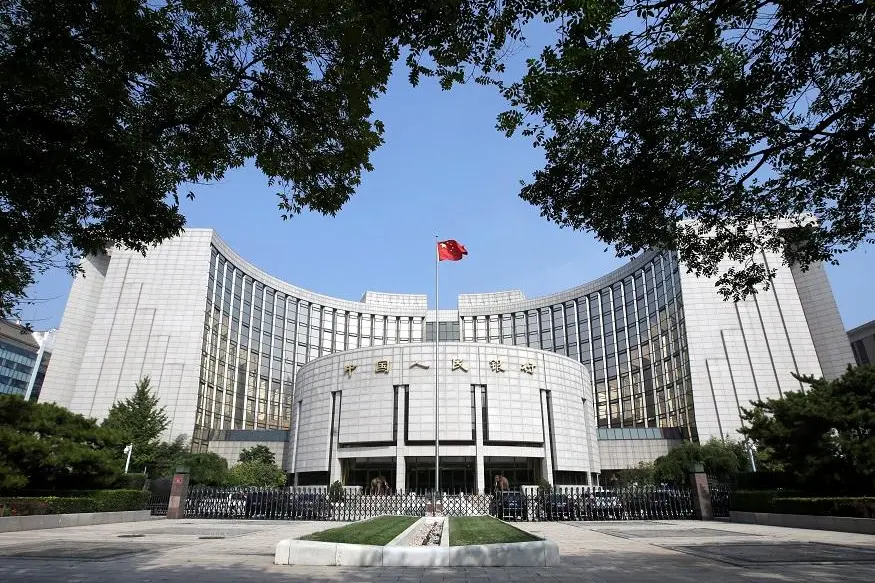PHOTO
HONG KONG - China may debut the breakout fintech innovation of 2020. Beijing is primed to launch the world's first digital sovereign currency. The initial roll out looks cautious, focusing on consumer spending. Deploying the new technology more widely in the country's banking system could be the disruptive next step.
A 2019 survey from the Bank of International Settlements found that 70% of the world's major monetary authorities are studying their own digital versions of money. The People's Bank of China, worried about private alternatives like Facebook’s Libra and Bitcoin, is likely to be the first major economy to launch its own.
Details are scarce, but Mu Changchun, the head of the PBOC's digital currency research institute, hinted in November that an "e-yuan" will be distributed via commercial banks, Tencent, and Alibaba-backed Ant Financial, national giants of online payments. Mobile wallet users will hardly notice the difference.
But the underlying distributed ledger technology - essentially, a shared database that is constantly synchronised by a network of computers - would give authorities unprecedented ability to track and monitor online spending flows. That could arm watchdogs with a powerful tool against fraud, tax evasion and money laundering. Using digital currency in wholesale financial markets would make interbank settlements and other transactions more efficient and secure. Putting it to work in the more backwards corners of China's financial system could also aid efforts to clean up 2.4 trillion yuan ($341 billion) of officially recognised bad debt.
One of China’s biggest problems, for example, is the illegal but widespread practice of pledging the same asset - bonds, deposit certificates, and shares - as collateral for multiple loans. Distributed ledgers could be more effective at detecting this practice than traditional databases used elsewhere. Many local businesses also still trade so-called discounted banker’s acceptance notes as cash-in-kind. Digitising these pieces of paper would also reduce fraud risk.
Rushing into the initiative would be risky but with President Xi Jinping backing blockchain, officials will have to deliver something. The PBOC will become China's next fintech star.
CONTEXT NEWS
- Mu Changchun, a Chinese central bank official said on Nov. 12 that a proposed digital currency is not a bid to gain “full control of information of the general public”. Speaking at a conference in Singapore, Mu stressed that the People’s Bank of China will balance public demands of anonymity with anti-money laundering and other concerns.
- The PBOC will adopt a two-tier approach with the project, Mu, who heads the central bank’s digital currency research institute, told a forum in Hong Kong earlier in the month. The monetary authority will first issue the currency to commercial banks and other institutions and they, in turn, will send it out for the public to use, he added.
- It is not clear when the new digital currency will be launched. Mu said in August that it was “almost ready”. The following month Chinese central bank chief Yi Gang said there was no timetable.
(Editing by Una Galani and Katrina Hamlin) ((robyn.mak@thomsonreuters.com; Reuters Messaging: robyn.mak.thomsonreuters.com@reuters.net))





















